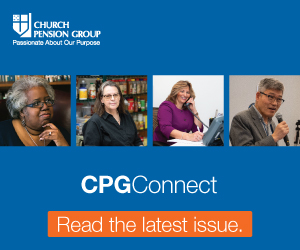An ecclesial Court of Review has determined that the recent episcopal election in the diocese of Florida was significantly flawed; having failed to follow diocesan canons and running afoul of Florida law. Though the court does not have authority to overturn the election, the irregularities found do call into the question the ability for the bishop-elect, the Rev Charlie Holt to receive the necessary consents.
You can read the entire report HERE (pdf)
Though there have been concerns raised about Holt’s opposition to marriage equality and the place of LGBT+ Christians in the church, the complaints submitted against this election were entirely procedural.
The Review Court took in all the objections and sorted them into three primary areas. First, that the convention failed to achieve a quorum of clergy in accordance with their own governing documents. Second, that numerous shifts and changes in the rules of order cast doubt on the integrity of the election. And third, that the electoral process, as it actually unfolded, was manifestly unfair to both the voters and the candidates. Upon concluding its investigation, the court found that that basis of the objections were valid while also acknowledging that the diocese acted with good intent, but that the sum of the irregularities were too great to ignore.
For the first objection, the court determined that a valid quorum of clergy was not met under the rules promulgated by the diocese and that allowing registrations after the posted deadline and online voting, even though the diocesan canons (and probably Florida law) do not allow for online voting.
From the report; “On or about May 9, 2022, it became apparent to the Standing Committee, the Chancellor, and the Bishop that the Convention was going to be unable to meet the quorum requirement in the Clergy Order, and they decided that “an electronic option was the only way we could achieve a quorum.” Unfortunately, that conclusion created a catch-22 for the Diocese, as its Canons do not permit electronic/remote attendance at Conventions and the only way to amend the Canons to provide for such, would be to convene Convention and amend the Canons or adopt Rules of Order to permit such; however, in order to achieve either result, it required the Convention to convene with a clergy quorum that did not exist. As one Clergy Delegate explained on May 13, 2022, they “were stuck.”
Without a quorum in the Clergy Order, Convention could not convene. The Diocese recognized this fact in the May 13 Notice, stating, “This is a serious issue, for without a quorum, we cannot convene Convention and would be forced to delay. Accordingly, the Court finds that on May 14, 2022 when the Convention was gaveled to Order with only 90 Clergy Delegates present in the room—the Convention lacked a quorum in the Clergy Order and should have immediately adjourned without action. Any action taken that day in the clear absence of a clergy quorum is null and void.”
The changes identified by the court which prejudiced the outcome were; a failure to follow the agenda of the convention, the manner of electronic participation and voting were uneven and poorly implemented, and that one of the candidates had intended to withdraw after the second ballot but were not able to do so. And lastly that the ignoring of deadlines and established procedures in order to make the election happen. In the original notice of convention, it was clearly stated that all voters need to be registered in advance and that they must vote in person. This was changed 48 hours in advance of convention and only for clergy candidates.
As the report noted; “We conclude that the Diocese’s failure to abide by its own stated Notice without significant cause was unfair to Lay Delegates; to those clergy who were physically present and who may have strategized in accordance with the rules to ensure their favored candidate was elected in reliance on the notice; and to the candidates themselves who also had a right to rely upon the notice and whose fortunes may have changed had the procedures as outlined been properly followed.”
image: The Rev Charles Holt (left), with the Rt Rev Samuel Johnson Howard, Bishop of Florida. Image from the Diocese of Florida.


